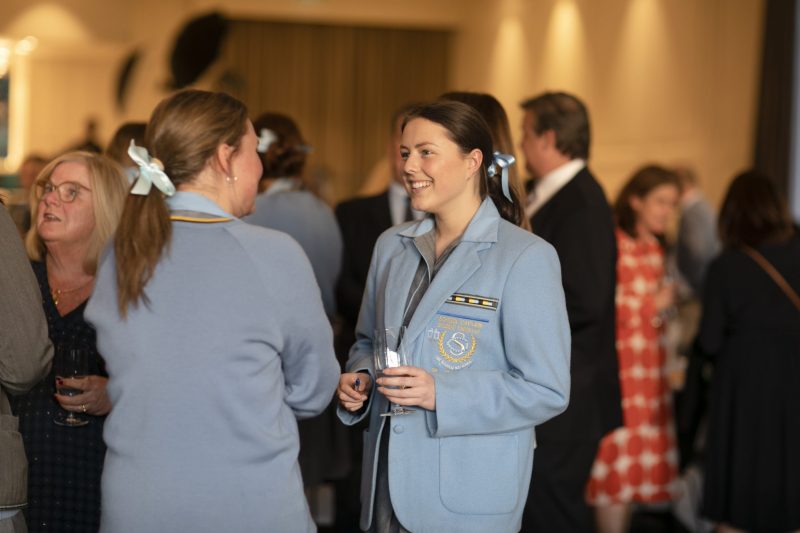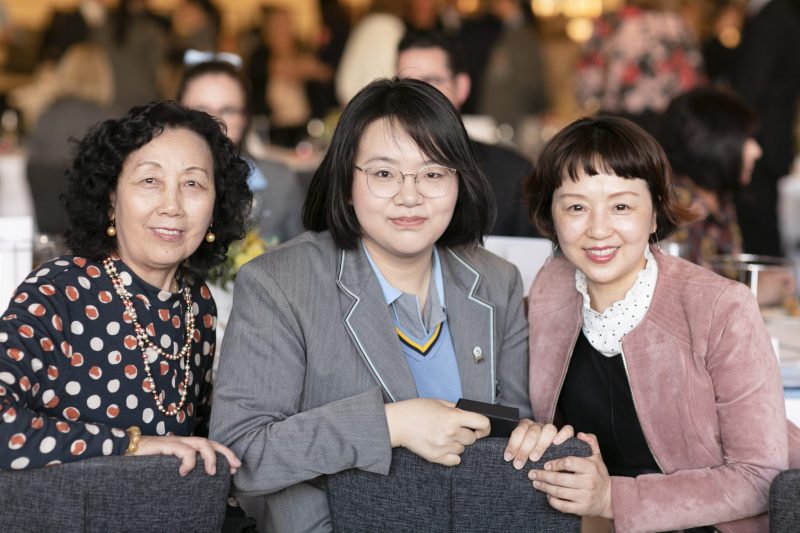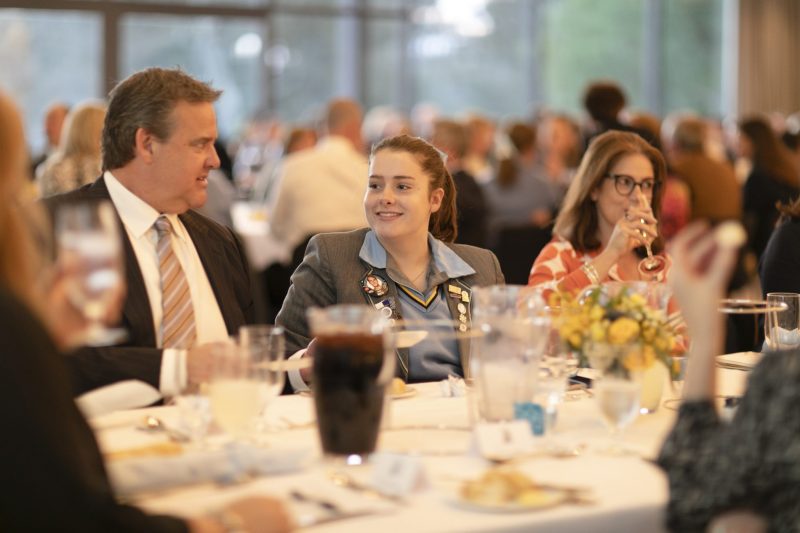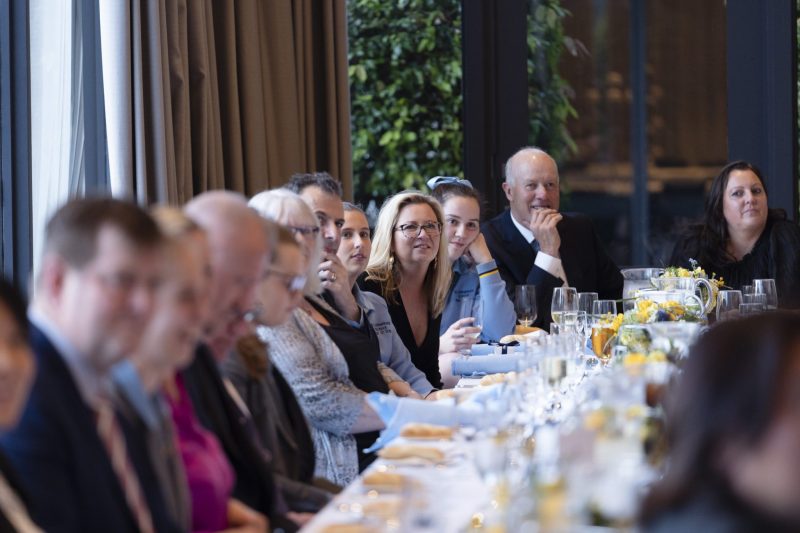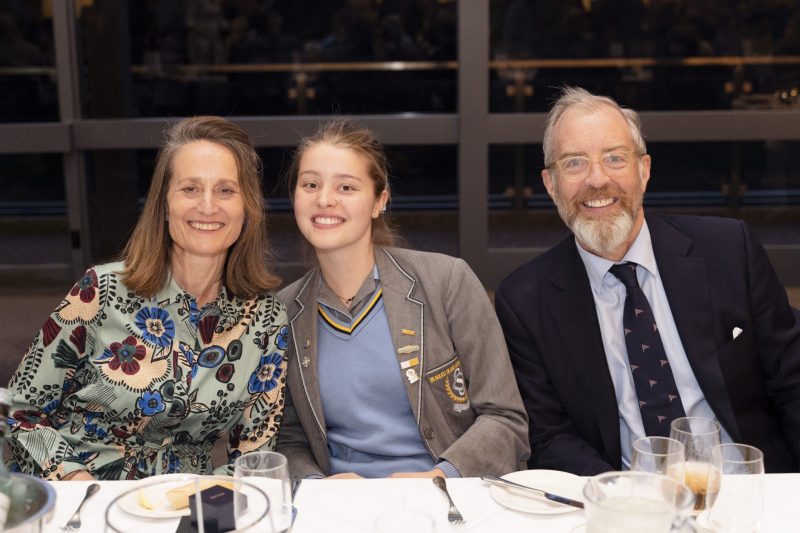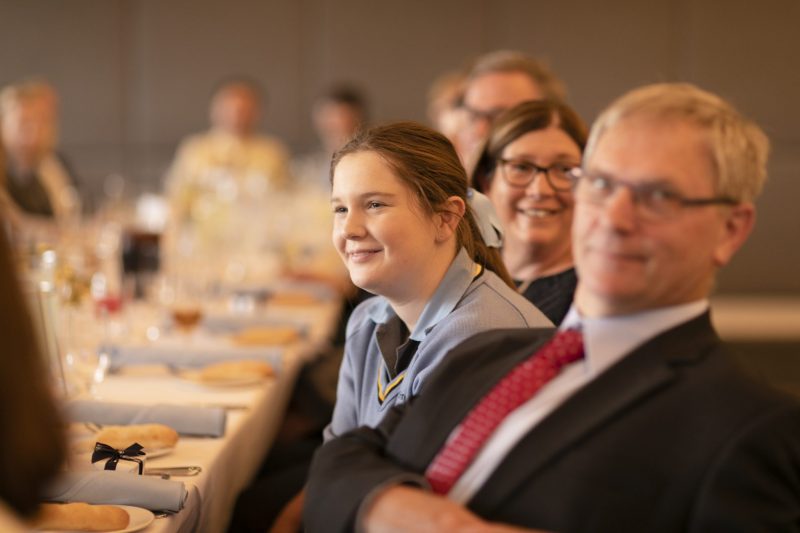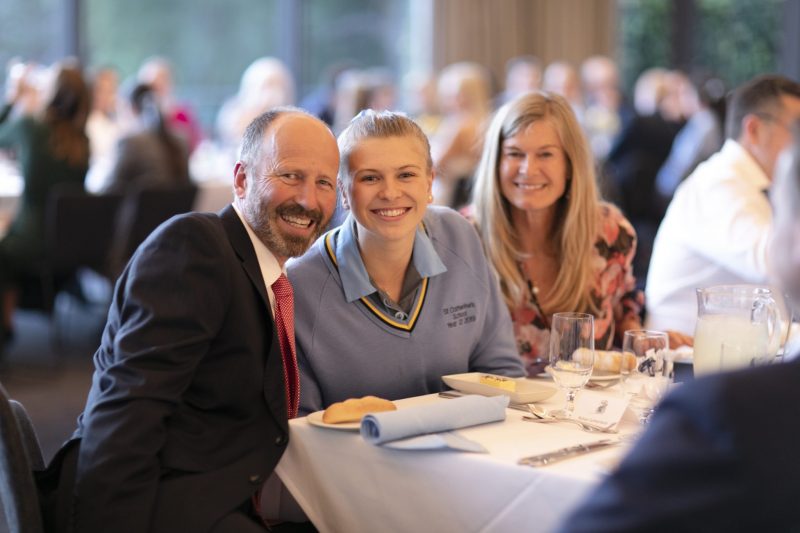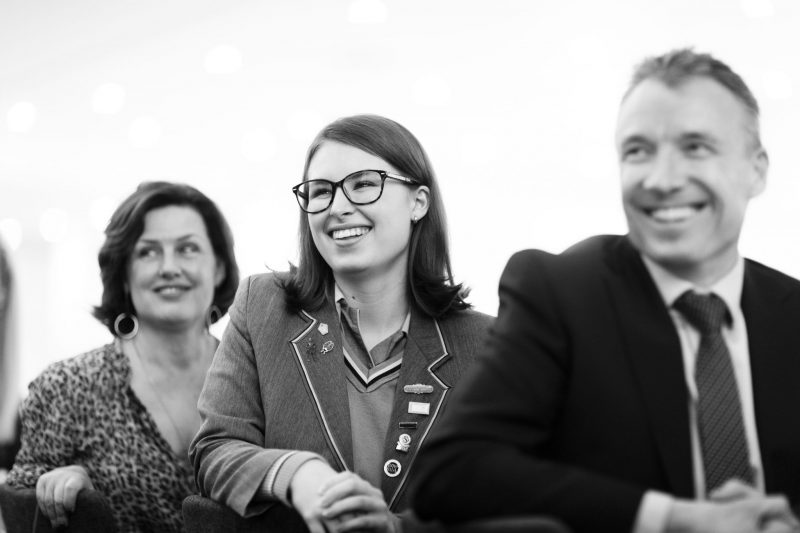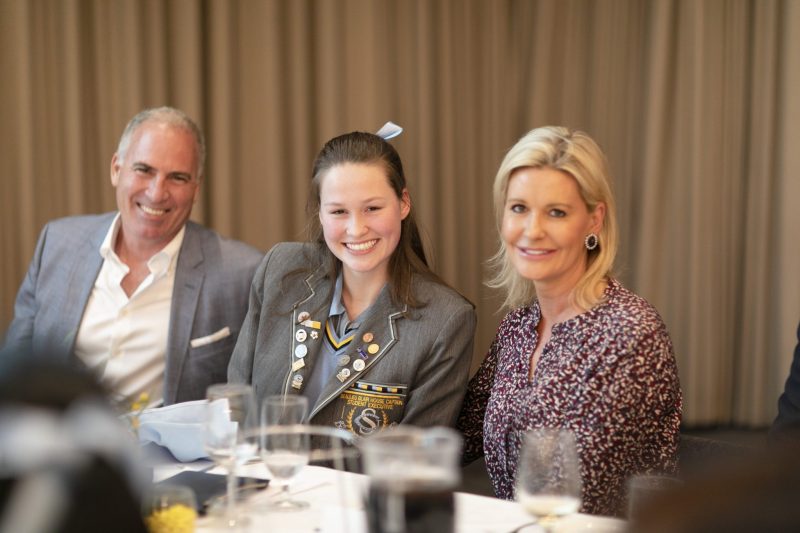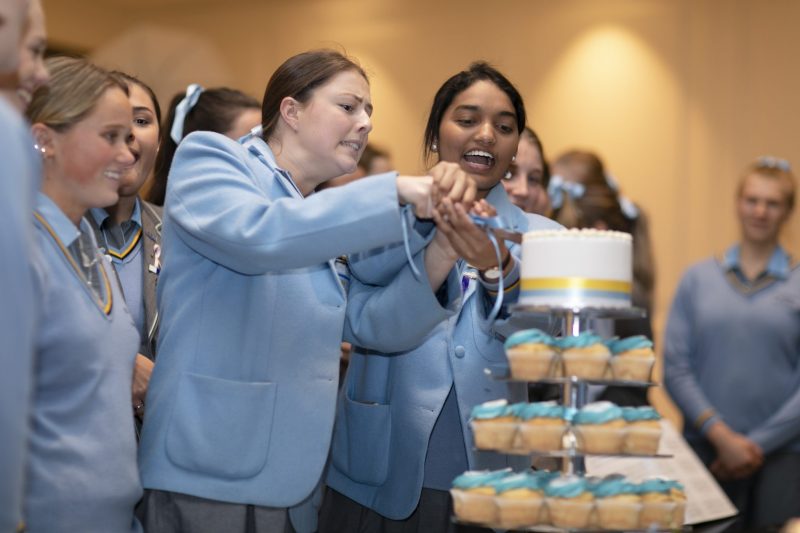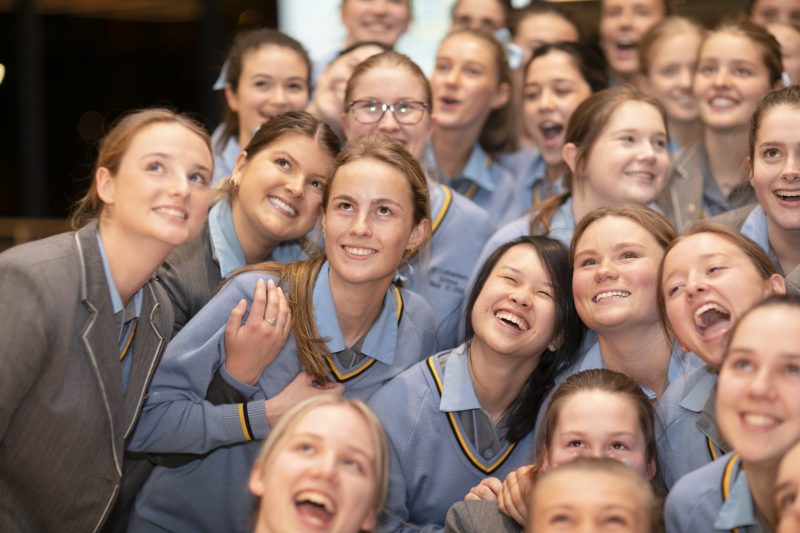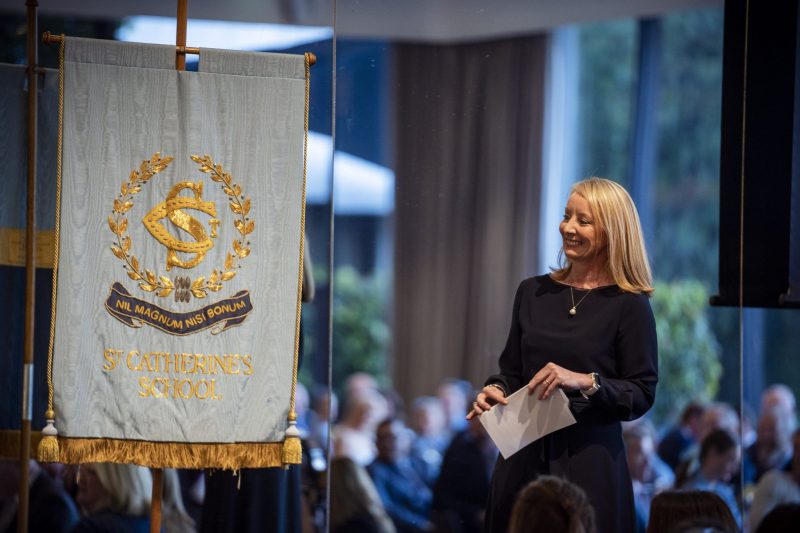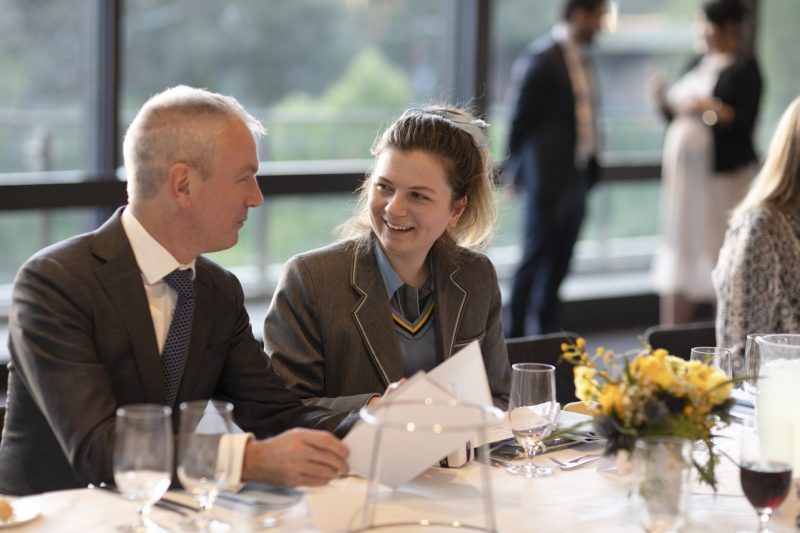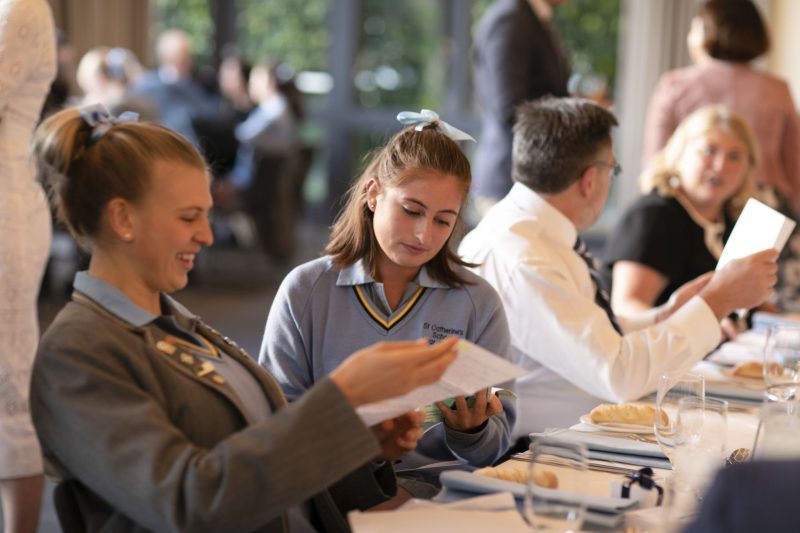Be Brave. Be Courageous. Be You.

“Be Brave. Be Courageous. Be You.” – Jenni Screen, Australian Olympian (Basketball), St Catherine’s Celebration of Sport Breakfast.
Year 12 Valedictory Dinner
Commencing with the Valedictory Dinner on Sunday evening, our Year 12 girls have enjoyed a week of celebrating their journey at St Catherine’s School. Such events have also included the VCE Art Exhibition, House Public Speaking and the Celebration of Sport Breakfast in addition to attending their final subject lessons and working in close partnerships with teachers through the practice exam process currently under way.
The Valedictory Dinner provided our Year 12 graduating class an opportunity to celebrate the power of shared experience, the value of friendship, achievements made and the excitement that lies ahead. It was in January of this year that our School Captains, Georgina Cottrill and Kavina Kalaichelvam, together with the Year 12 cohort, drew together their theme for 2019. It was an inclusive theme, all encompassing, united in spirit – coming together as ‘One’. This in itself tells a story about the graduating Class of 2019 where kindness, cohesiveness and being together truly exemplifies their approach to leadership this year.
The Year 12 Church Service and Final Assembly scheduled for Monday will enable an opportunity for Kavina and Georgina to reflect on their time at St Catherine’s and that of the journey of the Year 12 girls. As a cohort, born in a period of turmoil with the falling of the twin towers in New York and associated globally insecurity, the Class of 2019 remain a beacon of hope, irrepressibly committed to the future and a daily reminder that life is good.
As a School, we look forward to expressing our appreciation for their contribution as leaders this year and congratulating the girls for their significant contribution to St Catherine’s. As a tradition, all Senior School students will line the driveway on Monday forming a fitting guard of honour, as the graduating class depart through the Heyington gates for their final time as schoolgirls.
On behalf of the School community, I wish the girls every success as they embark on a period of demanding study, and with this, an elevated time of anxiety. Ensuring adequate sleep and a healthy diet with some daily exercise will contribute to managing the stress over the exam period.
Celebration of Sport Breakfast
We were reminded of the benefits of participating in sport at the annual Celebration of Sport Breakfast on Tuesday morning. Australian Olympic Basketballer, Jenni Screen, provided an insightful keynote address outlining the improvements in emotional and psychological health that comes with exercising. Physical activity causes the active release of endorphins in the brain and these ‘feel good’ chemicals are known to reduce stress, boost energy and reduce symptoms of anxiety.
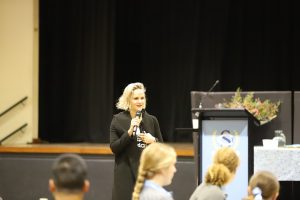
Australian Olympic Basketballer, Jenni Screen, delivered the keynote address at the annual St Catherine’s Celebration of Sport Breakfast.
Health and Physical Education Week
This week, we have also celebrated Health and Physical Education Week. This is a week that celebrates the role of Health and Physical Education in schools and communities. The aim is to promote the importance of Health and Physical Education in the Australian Curriculum and highlight the importance of Health and Physical Education to the learning and development of children and young people.
Please find below an article provided by the Alliance of Girls’ Schools Australasia that draws attention to how single-sex environments encourage girls to engage in physical activity and competitive sports, which in turn have a positive impact on body image, confidence and self-esteem.
Girls’ Schools Ahead of the Game in Team Sports, Physical Activity and Wellbeing
Issue 17/2019: 16 October 2019
Multiple international studies have found that the level of physical activity in girls decreases rapidly during the high school years, almost halving between Years 9 and 12. As a result, girls are significantly less active than boys, especially in school-based physical education (PE) lessons. However, these studies are generally based on girls attending co-educational schools where their decisions to opt out of PE and sporting activities are influenced by many factors including a reluctance to participate in games and sports against stronger and more competitive boys, as well as by issues relating to body image, self-esteem and confidence.
A recent study led by Gay Timken of Western Oregon University reviewed the international literature on girls’ participation in PE lessons which, across the world, principally takes place in co-educational schools. Timken and her colleagues write that these studies demonstrate that:
- Girls are not the problem. Teacher bias regarding curricular access, choice, selection, programming, and other pedagogical processes within PE lead to less active participation by girls.
In particular, they note that in an environment where the curriculum is skewed towards sports and activities preferred by boys, school-based PE reinforces “more sedentary behaviour in girls due to a more male-dominated, traditional, team-sport oriented curriculum that lacks a wide variety of choices”. International research has also demonstrated that physical activity and PE lessons “have been places rife with dominance, harassment, and intimidation of girls, leading girls to disengage and/or prefer different circumstances”.
Unsurprisingly, multiple studies have found that girls prefer single-gender rather than mixed gender PE classes. Studies have also found that girls often prefer dance and fitness activities to sport activities because they do not require a team, are non-competitive, can occur any time, and may require less coordination than team sports.
A 2015 study found that a ‘girl friendly’, single-gender fitness option improved the participation of girls who had become disengaged from PE as the female-only, non-competitive activities increased their levels of comfort and confidence. Other studies have demonstrated that girls who participate in single-gender teams within a co-educational PE class show increased competence, possibly because girls playing on all-female teams perceive less competition and feel more confident about their ability level.
It would appear, therefore, that girls’ dislike of competitive and team sports, and lack of comfort and confidence outside ‘girl friendly’ fitness options, is more related to their negative attitudes towards participating in these activities with boys in mixed-gender PE classes. Given the opportunity of single-gender options, girls enjoy competitive games and sports, as well as individual and non-competitive activities that improve their fitness and self-esteem.
However, despite the large body of evidence in support of single-gender PE classes and activities for girls, Timken and her colleagues are reluctant to recommend this course of action as a solution to girls’ decreased rate of physical activity in co-educational high schools. Instead, they state that:
- PE teachers must, intentionally, confront gender barriers as well as peer-to-peer and teacher-to-student relationships. Avoiding the topic and/or pretending such issues are non-existent does little to enhance a sense of relatedness and diffuse the power differential between students, teachers, and curriculum.
What does this mean in practice? Timken’s team argues that teachers in co-educational schools should “reconsider what is likely an outdated and limiting definition” of physical activity, especially within the context of PE lessons.
Each year thousands of students from girls’ schools participate in a multitude of sporting and fitness activities, from all-female competitive team sports which are so important for building confidence and leadership skills, to dance and yoga which promote fitness and mental wellbeing. It cannot be a coincidence that girls’ schools produce graduates with higher self-esteem, better body image and greater sports participation rates than co-educational schools. In fact, a large body of international research provides the evidence that this is because girls prefer single-sex PE lessons and physical activities where, in an environment without boys, they are free to participate and compete to their full ability, to be themselves and have fun, and feel confident in their own image.


